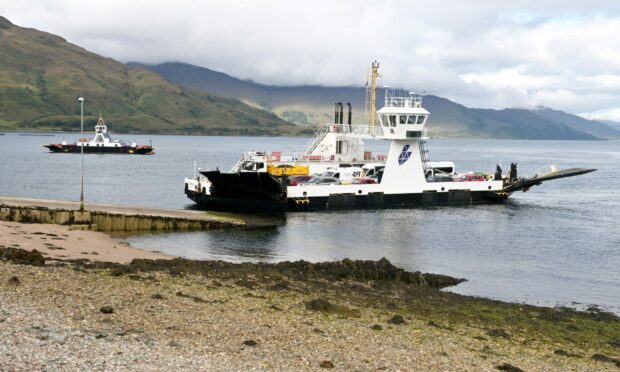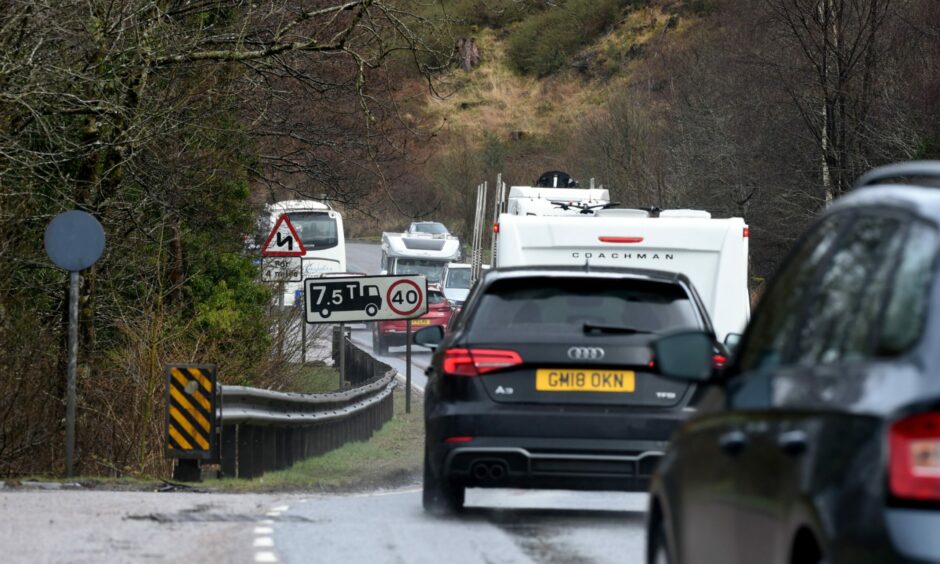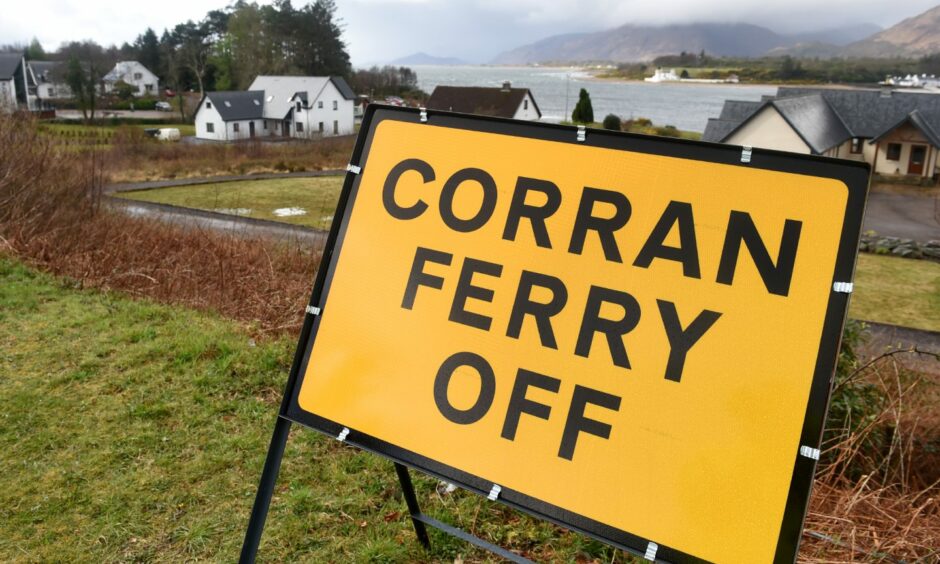Highland Council has praised a meeting on the Corran Ferry crisis as “constructive”.
The meeting was held on Wednesday night with representatives from the six community councils from Ardnamurchan Peninsula and Nether Lochaber.
It confirmed the MV Corran will be out of action until its repairs are completed in June.
Earlier this month, its smaller relief vessel broke down, meaning there is now no vessel able to make the six-minute ferry journey.
It is the busiest single-vessel ferry route in Scotland and carries more than 270,000 cars each year.
Now, motorists have to drive at least one hour and 16 minutes on the road around Loch Linnhe.
The community councils also highlighted the significant detrimental socio-economic impact on the tourism businesses in particular.
However, the council’s chief executive said while “sympathetic”, there is no compensation route available through the council or the Scottish Government.
Last week, a team of experts from the Ministry of Defence came to the site to assess if they could help at the request of the Scottish Government.
What was discussed at the meeting?
Highland Council has said a number of discussions were had at the meeting, including:
- It will provide updates on when the MV Corran and its replacement vessel the Maid of Glencoul are repaired.
- It will make adjustments to timetables and road improvements in response to local advice.
- It will continue on road improvements like extending passing places and enhancing signage.
- It is putting in place a shuttle bus service, working with local providers. It is hoped that a combined bus and ferry timetable will be published in the first week of May.
- It was agreed the council would assist with media communications to say the Penninsula remains open to business with alternative road routes being advertised.
The council also promised to work with the Highlands and Islands Transport Partnership to update reports on the costs, technical requirements and timescales of the various long-term options.
A follow-up meeting is planned within the next two weeks to discuss mitigation and emergency planning, as well as assess the long-term options for replacing the existing service.
In November, the council moved closer to a £68 million business case that involves using two electric ferries.



Conversation